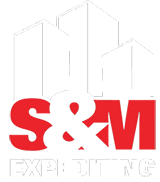The Department of Buildings’ Boiler Division oversees the installation and operation of New York City’s boilers. Property owners are responsible for ensuring that their boilers operate safely and are in compliance with the Building Code and all related regulations.
2011 Boiler Inspection Cycle: November 16, 2010 to November 15, 2011.
Boiler Information and Updates
Effective November 16, 2010, high pressure boilers must have an internal and external inspection. The Department of Buildings will not be conducting these inspections for the upcoming cycle:
- High Pressure Boiler Inspections
- Low Pressure Boiler Inspections
- First Test Appointments
- Filing Fees & Penalties
- Closing Outstanding DOB Boiler Violations
Contact: Boiler Division 280 Broadway, 4th Floor New York, NY 10007
Monday to Fridays, 8:30am to 4:30pm
Email: BoilersInfo@buildings.nyc.gov
More helpful numbers:
Customer Service: (212) 227-4416
Boiler Technical Director: (212) 566-5023
Policy Information Line: (212) 566-4994
Research and Processing: (212) 442-7760
First Test Appointments: (212) 566-4916
DEP Renewal: (718) 595-3855
Boiler Complaints: 311



